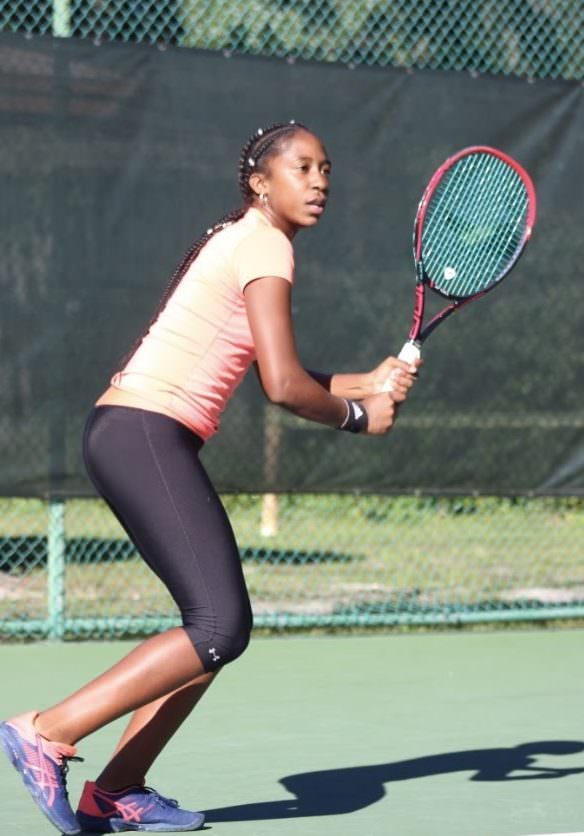February 7th, 2018
Florida Tennis Profile: Apopka Junior Leslie Uses Game to Build Mental, Emotional Strength
As USTA Florida celebrates Black History Month throughout February, we’ll be profiling the adults and juniors who are performing on the courts and giving back to their local communities through their love of the game.

Now the 15-year-old from Apopka, outside of Orlando, is ranked No. 14 in the girls’ 16s in Florida, and last year was the state singles runner-up at the Class 4A high school championships as a freshman. She has aspirations for a pro career, and to provide financial opportunities for the less-fortunate to reach their goals.
Why tennis?
I chose tennis because of the independence and because it was different than all the most common sports. I used to play soccer, and I used to run track, but I always went back to tennis because it was the sport I loved.
Who has been your biggest influence?
My biggest influence in tennis would be my dad because he truly pushes me to do my best and always encourages me to push past the limit. Without him, I wouldn’t be as far in tennis as I am today.
Who is your favorite player?
My favorite women’s tennis player would have to be Madison Keys because my game resembles her game in multiple ways, especially when it comes to working hard and always striving to be better. My favorite men’s tennis player would have to be Nick Kyrgios, because he has a really strong game, tremendous speed, and knows what it takes to possibly win a Grand Slam.
What do you like the most about tennis and how has it impacted your life?
The thing I love the most about tennis is the competitiveness and the independence because if I lose, it’s only because of me, whether it be I didn’t play hard enough, or if I didn’t make the best choices. Especially if I win, I know I won because of me and my hard work. Tennis has impacted me by making me physically and mentally strong, whether it be me playing tennis, or me reacting to the things outside of the sport, and it also impacts my life by letting me travel to new places, and to meet people from all over the country.
What is your biggest accomplishment on the tennis courts?
The biggest accomplishment on the tennis court was finally learning how to stay mentally and emotionally strong, learning how to compete at high levels, and being responsible for my own actions.
What is the significance of Black History Month to you?
Black History Month is the time when we celebrate the achievements of African Americans that paved the pathways to the opportunities that we are able to have today.
Do you currently celebrate this month? If so, how?
I don’t really celebrate Black History Month, but every year as the month approaches I always acknowledge what has been done in order to benefit the future for many African Americans, including myself.
What do you think has contributed to the growth of tennis and the participation of the African American community in the recreational and competitive levels over the years?
I think what contributed to the growth of tennis is that because of the Williams sisters [Serena and Venus], tennis has become popular over the years for young blacks, and more courts have been built in the inner city for easy access for African Americans. Including the USTA, that now has more multi-cultural camps.
What are your dreams as a person and tennis player?
My dream as a tennis player is to become a very successful professional and to give back to those who financially couldn’t reach their goals, especially in the country my family is from, Belize.
What message do you have for parents and children looking for a sport to play?
Make sure you choose a sport that you will 100 percent enjoy and want to succeed in. And for parents, don’t force anything — if your child wants to play that sport, they will truly show you by how hard they work.


